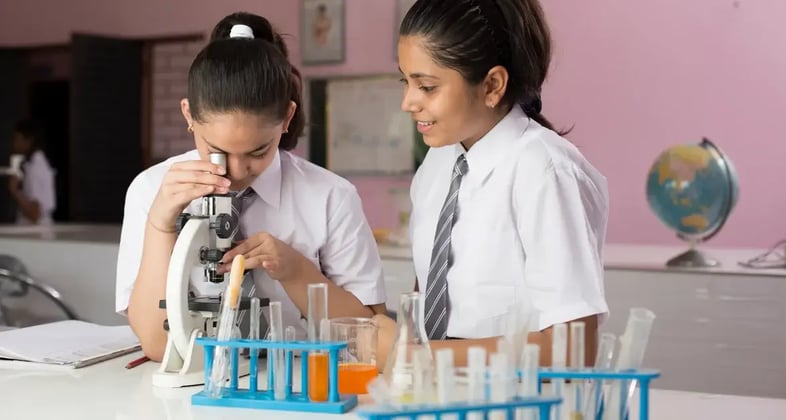Who am I?
Where do I fit?
What am I passionate about?
What’s the purpose of my life?
Most kids while growing up have vivid ideas of what they want to be in future, however by the time they enter their teen years, this question takes a serious undertone.
Knowing answers to these questions becomes increasingly important for teens while they are in college. Kids do not want to take stress thinking about jobs and work before the time comes. However, there are net gains when thinking of the importance of exploring careers as early as a teenager.By exploring careers early on, kids are able to identify which career pathways they feel passionate about and which ones they don’t. Subsequently, it simplifies the process later on while deciding on a college discipline or a career path. It also makes sure that as an adult, they won’t be working at a job that does not satisfy their interests and passions.
One of the best ways for teenagers to embark on the journey of career exploration is through experiential learning.
“Tell me and I forget, teach me and I may remember, involve me and I learn”
Benjamin Franklin
Learning while doing rather than just memorizing the fundamentals of the skills within a classroom setting sums up the essence of experiential learning. Experiential learning avenues can be explored through various routes which include school clubs, internships, summer camps, community service etc.Furthermore, exploring careers through the experiential learning route gives teens the opportunity to learn and grow through experiences allowing them to gain communication, leadership, and teamwork skills which are needed to thrive in a work environment. Not only does it gives them an excellent opportunity to build a professional network but also aids in enriching their resume by showcasing how much they have learned about job-related tasks. It empowers teenagers to know what they like and what they don’t like to avoid job dissatisfaction in the future.
In a nutshell, experiential learning is like investing in your future by engaging in various activities in order to gain the knowledge, experience, and skills needed to succeed in the future.
The idea of experiential learning is not novel. In 1984, David A Kolb an American Psychologist postulated “Kolb’s Theory of Experiential Learning”. He proposed that learning requires a collection of abstract concepts that can be applied flexibly in a wide range of situations. According to him, experiential learning is a four-step process that is applied multiple times in every interaction and experience.
Experience – Reflect – Think – Act
This cycle is so organic that people engage in it without being aware that they are learning. It happens almost effortlessly all the time and is constantly transforming our learning experiences.
Experiential learning comes in different shapes and configurations and can take place both in and outside the classroom. Types of experiential learning that kids can explore depending on their liking and preference include-
- Internships: They are of shorter duration allowing students to gain work experience, college credit and foster personal and professional development.
- Volunteering or community service: It’s an unpaid program which requires students to invest time and energy for a worthy cause, in exchange for promising them new skills, experience, perspective and relationships.
- Laboratory work: Practical experimentation carried out in a lab environment where students are supervised by teachers.
- Research study: Students can collaborate with faculty members on academic projects to gain experience in the research process.
- Summer camps: They offer an opportunity to grow and learn in an outdoor setting. Summer camps could be both in India as well as abroad.
- Joining school clubs: Kids should thrive to be active members of any club of their interest (dramatics, literary, astronomy, environmental, art etc.)
- Participating in debate and quiz competition: Active participation in school quiz competitions, debates and Olympiads helps in enriching the skills of children and broadens their exploring horizons.
- Online learning: E-education network has been growing rapidly, catering to the goals of children of all ages. It helps in understanding the concepts in an interesting manner. Additionally, they provide tests and quizzes so that kids can assess themselves.
With experiential learning, the real learning comes after teenagers have the opportunity to think about what they have experienced. To make the best use of experiential learning exposures, teenagers should indulge in self-introspection and try to answer some reflective questions like-
- What was the best part of their experience?
- How did they grow from the experience?
- Did this experience spark other interest areas that they want to look into?
- What knowledge and skills did they take away from this experience?
- Did this experience help them consider a different career path?
Assisted with some self-analysis and thoughtfulness the “Learning by Doing” philosophy will definitely equip teenagers-
- with skills that prepare them for life after school
- narrow their career options
- have a better grasp of the theoretical concepts
- reflect and learn from their mistakes
- stand out in the job market in future
Do not hesitate in motivating your teens to explore different career pathways or they could be stuck in careers like round pins in square holes.
Eminent career counsellor and a founder of Centre for Career Development with more than 21 years of experience in mentoring students accross the world.
The views expressed are that of the expert alone.
The information provided in this content is for informational purposes only and should not be considered a substitute for professional medical advice, diagnosis, or treatment. Always seek the advice of your physician or another qualified healthcare provider before making any significant changes to your diet, exercise, or medication routines.
















